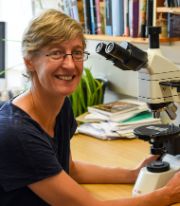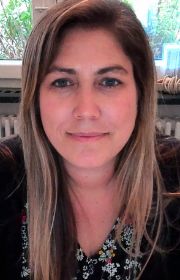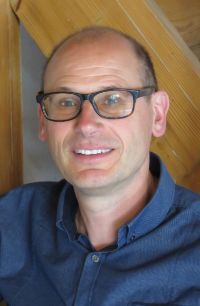This is the third time we arrange our DEEP general assembly, which aims to bring together researchers and PhD students within solid earth and planetary science in Norway for scientific discussions and social gathering.
Registration
We still have the possibility to register more participants. Contact us at post-deep@geo.uio.no.
The program
Please follow the link for our preliminary program.
The theme and our invited key speakers
Our assembly will focus on the theme Hard Rock Geology. Hard rock geology is a colloquial term in the earth science community, but most people have a rather clear picture of what the topic refers to. Traditionally, the term includes a range of disciplines within the earth sciences: Petrology, mineralogy, structural geology, geochemistry, isotope studies (stable and unstable), and tectonics.
The fact that the term includes the word “rock” indicates that the research focusses on real material. The fact that this material is supposed to be “hard” refers to a more deep-seated origin of the rock: It commonly has formed at elevated pressures and temperatures, where the porosity becomes small and certain minerals are more stable than others. The more deep-seated origin of the subject of the research appears to put it into the focus of the DEEP research school. This view may come a bit as a surprise to those who are dealing more with geophysics and modeling aspects of, e.g, studies of the deeper mantle. As the lower mantle (and other large parts of the mantle) are not accessible to direct observation, the research in this field is dominated by geophysics and modeling, both of which do not deal much with solid materials as such. However, they are dealing with processes, and these are the important link between the material-based science of hard rock geology and the modeling- and geophysics- based sciences: the most important goal of hard rock geology is to explain the processes and conditions which have produced the material we study. If we see the processes at the core of our interest, the differences in approach become more negligible: physical and chemical parameters are important input for geophysics and modelling, and modeling and geophysics define boundary conditions for the formation of the rock material. All of our invited speakers pursue process-oriented research that bridges many disciplines:
 Clare Warren carries out research on the evolution of mountain belts that form when continents collide. Much of her work has concentrated on determining how and when deeply buried rocks record the timing of their burial and exhumation, as well as on determining burial, transformation and exhumation processes and mechanisms. This includes the geochronological evolution of metamorphic rocks, specifically using Ar/Ar (mica) and U-Pb (monazite, rutile, titanite, zircon), metamorphic pressure-temperature-time path modelling, and diffusion modelling, in particular the diffusion of species important to geochronology (e.g. Ar in muscovite, Pb in rutile) and thermobarometry (e.g. Zr in rutile).
Clare Warren carries out research on the evolution of mountain belts that form when continents collide. Much of her work has concentrated on determining how and when deeply buried rocks record the timing of their burial and exhumation, as well as on determining burial, transformation and exhumation processes and mechanisms. This includes the geochronological evolution of metamorphic rocks, specifically using Ar/Ar (mica) and U-Pb (monazite, rutile, titanite, zircon), metamorphic pressure-temperature-time path modelling, and diffusion modelling, in particular the diffusion of species important to geochronology (e.g. Ar in muscovite, Pb in rutile) and thermobarometry (e.g. Zr in rutile). Whitney Behr focuses on the rapidly deforming zones that define Earth’s tectonic plate boundaries and generate many of the planet’s geohazards. She is interested in the rates and directions in which faults and shear zones move; their geometries, widths and mechanical behaviors at depth; and the processes that shape them over geologic time. To address these topics, she employs a range of tools and techniques that include field observations, analytical measurements, laboratory experiments, and numerical models. Collaborations and synthesizing datasets include many disciplines, including structural geology, petrology & geochemistry, experimental rock mechanics, surface processes, seismology, and geodynamics.
Whitney Behr focuses on the rapidly deforming zones that define Earth’s tectonic plate boundaries and generate many of the planet’s geohazards. She is interested in the rates and directions in which faults and shear zones move; their geometries, widths and mechanical behaviors at depth; and the processes that shape them over geologic time. To address these topics, she employs a range of tools and techniques that include field observations, analytical measurements, laboratory experiments, and numerical models. Collaborations and synthesizing datasets include many disciplines, including structural geology, petrology & geochemistry, experimental rock mechanics, surface processes, seismology, and geodynamics.
Sumit Chakraborty is an experimental and theoretical researcher of earth materials. He applies physical chemistry, theory, and field work to understand timescales and mechanisms of geochemical and cosmochemical processes. Goals are the understanding the atomistic mechanisms of flow and creep of silicates and oxides and diffusion controlled processes in materials science problems. Theoretical work is directed towards development of methods and tools for diffusion chronometry and geospeedometry. He explores relationships between thermodynamic and kinetic parameters, point defect thermodynamics of minerals, combined thermodynamic-kinetic modeling of geochemical processes to constrain time scales of geological and cosmochemical processes.
 Jörg Herrmann aims to understand rock-forming processes from the micron- to orogen-scale in the Earth's crust and mantle. For this purpose, he uses subduction-collision orogens as natural laboratories to study phase and melting relations and to constrain chemical cycles through a combination of metamorphic petrology and in-situ geochemical analyses. These observations are complemented by numerical models and experiments under controlled conditions. His research combines fieldwork, petrography, and petrology with advanced analytical techniques in a dynamic team of students and researchers from different areas.
Jörg Herrmann aims to understand rock-forming processes from the micron- to orogen-scale in the Earth's crust and mantle. For this purpose, he uses subduction-collision orogens as natural laboratories to study phase and melting relations and to constrain chemical cycles through a combination of metamorphic petrology and in-situ geochemical analyses. These observations are complemented by numerical models and experiments under controlled conditions. His research combines fieldwork, petrography, and petrology with advanced analytical techniques in a dynamic team of students and researchers from different areas.
Poster presentation and abstract
Please submit your abstract to post-deep@geo.uio.no before 1 February 2019. All PhD students must bring a poster to present at the general assembly.
Meeting location, accommodation and travel arrangements
The general assembly will be hosted at Sommarøy Arctic Hotel. It is a one hour drive from Tromsø and we will arrange bus transport. DEEP will also arrange for your travel tickets. We will be in touch when the registration has ended regarding the arrangements.
Expenses for DEEP members
DEEP will organice and cover the travel and accommodation for all members. Please note that registration is binding and that cancellations after the deadline 15 January 2019 may be charged up to 3000 NOK.
Expenses for DEEP associates
If you are a DEEP associate from outside Norway; we cannot cover your travel and accommodation. But you are welcome to join us!
